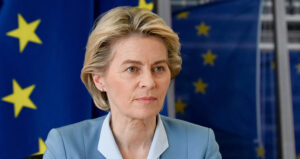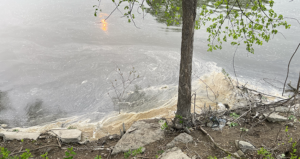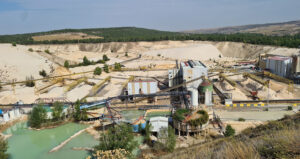Industry pleas for tools to safeguard water
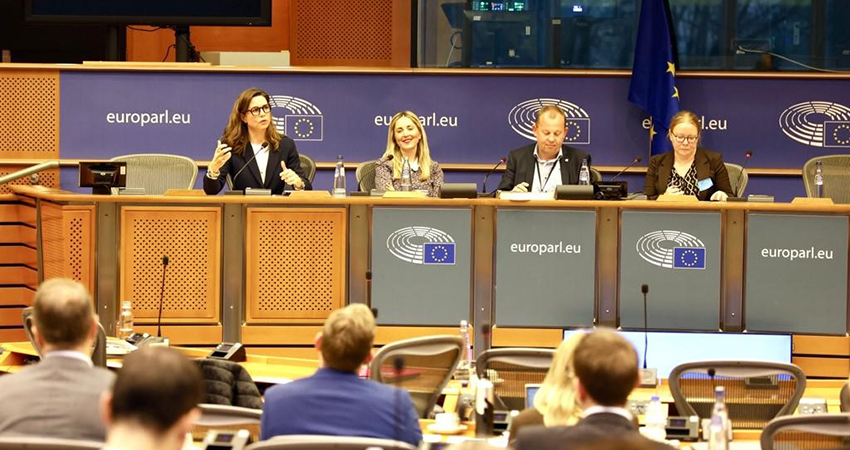
-
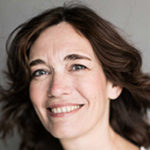 Esther Rasenberg
Esther Rasenberg
Share article:
“The industry in Europe knows they need to be ambitious in order to safeguard water resources. That is why they want to focus on the available tools and they plea Brussels to make it possible to implement them”, explains MEP Pernille Weiss, the Danish chair of the water group of the European Parliament. In Brussels industrial companies asked for more funding, help by upscaling products from lab to market and research budgets.
Weiss (European People’s Party) was present at an industrial event on the 12th of January at the European Parliament in Brussels. Three representatives of Danish industrial companies were there to discuss water efficiency in industries. It is estimated that industry represents more than 40% of the total water consumption in Europe, thus being a key catalyst in mitigating and overcoming the water challenges in a sustainable and efficient way.
Solutions
In Denmark, companies like Grundfos, AVK, Rambøll, NIRAS, Carlsberg Group and FLSmidth have all shown how solutions in the value chain such as metering, pumps, valves and temperature control can produce the necessary goods for sustainable societies in Europe. At the political level, ambitious policies and efforts are likewise being evolved to ensure that a combination of public-private leadership and innovative water solutions can effectively address the water challenges of Europe.
Europe lags behind
According to Weiss we are lagging behind on investments in Europe. “Our competitors in the US are receiving state aid and investing more in public-private cooperation. The government is much more agile and able to give tailormade help. She is referring to the America Inflation Reduction ACT (IRA) a 369 billion dollar industrial subsidy scheme to support low-carbon businesses. “If we want industrial companies to remain operating in Europe we should focus on innovation and thought-through innovation projects in and across EU Member States.”
Recast Industrial Emissions Directive
In Europe the Industrial Emissions Directive (IED) is being revised. In April 2022 the European Commission presented a proposal that restricts industrial discharges. This includes tighter permit controls, investments in clean technologies, the launch of an Innovation Centre for Industrial Transformation and Emissions (INCITE) and enhanced data transparency. The European Parliament’s ENVI committee vote on this file is scheduled for 27 April 2023. The Swedish presidency aims for the Council to adopt its General Approach on the text before July.
Take action now
In anticipation to the IED revision Danish companies were sharing their sustainable solutions. They referred to smart metering and efficient and manageable pumps and valves. According to the industry Europe must develop a coherent Industrial Emissions Directive within a water-smart strategy. During the event Grundfos, Carlsberg, the Confederation of Danish Industry, WaterEurope and FLSmidth issued a joint statement. The main request is to positively impact water demand within a relatively short time. The cost of water risks to business is calculated as five times higher than cost of taking action, underlines the statement.
Start with biosolutions
Danish, German, Dutch, Norwegian and Swedish national authorities have submitted a proposal to ECHA to restrict per- and polyfluoroalkyl substances (PFAS) under REACH. Pernille Weiss says it is not difficult to ask in the European Parliament for a ban on pesticides and PFAS. “But what do we do then? What we need is a transition roadmap. Actually we do not need to wait on a recast of REACH to implement biosolutions. It is important to open doors for low risk chemicals and biosolutions as soon as possible.” “The green transition requires clever water management”, said Stéphane Simonetta. He spoke about the potential in intelligent water use at the event in the European Parliament.
Integrated water approach
Making water laws in Europe is complex. There are twenty Directives that are interlinked with water. An enormous amount. Not so surprising the industry pleas for ‘an integrated approach to water’ in their statement. They would like to see regulations for resource management, water reuse, and wastewater discharge in tune with other water directives in the Industrial Emissions Directive.
Industrial restrictions
Amendments to the draft revision of the Industrial Emissions Directive were published in January and discussed in the ENVI Comittee. EurEau states many of the proposed amendments support their views, including requirements for industries to inform waste water treatment plant (UWWTP) operators of discharges into urban sewers, consult drinking water and waste water operators before granting an industrial permit and prohibit the discharge of substances not explicitly allowed by the permit. ‘We trust that the Parliament will vote to maintain a high level of ambition in protecting water resources from pollution and over-use’, writes EurEau in their newsletter.

